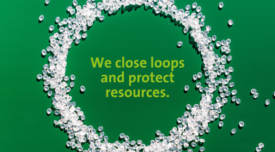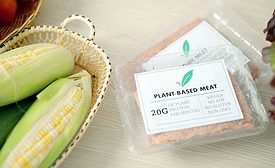Home » Keywords: » Recyclable packaging
Items Tagged with 'Recyclable packaging'
ARTICLES
Food Safety Versus the Green Transition
New microbial and chemical risks come with the greater incorporation of plant-based raw materials into human diets and the introduction of reusable packaging
December 12, 2023
Extended Producer Responsibility Programs for Food Packaging: Balancing Source Reduction with Food Safety
EPR programs shift responsibility for management and disposal of consumer products to producers and distributors—and are gaining ground in the U.S.
June 12, 2023
Never miss the latest news and trends driving the food safety industry
eNewsletter | Website | eMagazine
JOIN TODAY!Copyright ©2025. All Rights Reserved BNP Media.
Design, CMS, Hosting & Web Development :: ePublishing








